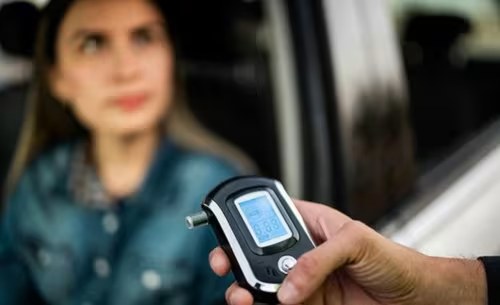Disclaimer: This guest post was written by a third party and is for informational purposes only. It does not constitute legal advice or create an attorney-client relationship with The Meehan Law Firm. For legal advice, please contact our office.
.webp)
.webp)
Overview of California's Open Container Regulations
For anyone living in California or planning a trip, it’s important to get familiar with the California open container laws, because even though they seem pretty straightforward, there are some details that can easily catch drivers and passengers off guard. The primary statutes governing open containers in California are found in Vehicle Code Sections 23223 and Section 23222(a).
What is an Open Container?
California open container laws define an open container as any bottle, can, or other container containing alcohol that has been opened, has a broken seal, or has had some of its contents removed. So, that half-finished bottle of wine from last night, or a tumbler of wine you have in the cup holder, or even an opened beer, is considered an open container.
Prohibitions Under California Vehicle Code
Under Vehicle Code 23222, it’s illegal to have an open container of alcohol in a car, whether it belongs to the driver or a passenger. Having an open container in the car can lead to legal consequences for the driver, even if they aren't actively drinking. VC 23222 is an infraction
Exceptions to the Rule
Like any law, there are a few exceptions to California's open container restrictions.
Party Buses and Limousines
If the open containers are in a party bus, limousine, or certain types of RVs, the rules are more flexible. In these cases, passengers are allowed to consume alcohol while the vehicle is moving, as long as the vehicle is hired or rented specifically for the purpose of transporting passengers. However, the driver must still abide by strict no-drinking rules.
Passengers Under 21
California has zero-tolerance laws for drivers and passengers under 21. That means no alcohol is allowed in the car—open or closed container—if the driver or any of the passengers are under 21. This applies even if there is an adult in the car. Vehicle Code 23224 is a misdemeanor. Violation could result in fines, community service, and even a suspended driver’s license.
Legal Consequences and Penalties
Violation of Vehicle Code section 23222 is punishable by a fine up to $250. For anyone under 21, the state’s zero-tolerance law means they can face fines of up to $1,000, community service, and possibly a driver’s license suspension for up to one year.
For repeat offenders or those with multiple infractions, the penalties are higher, leading to even steeper fines and more severe charges.
How Open Container Laws Relate to DUI
Having an open container is not considered a DUI offense, although it can be an indication of impairment and may lead to investigation for DUI. Law enforcement officers may use the presence of an open container as a factor in assessing whether a driver is impaired.
Defenses to Open Container Charges
- The alcohol was in the trunk of the car (not accessible to the driver)
It is legal to drive with an open container in the trunk of the car. If the vehicle does not have a trunk but the container was in an area of the car not normally occupied by people, a truck bed for example, there is no violation.
- The alcohol was in a bus, taxi, limousine, “housecar” or camper
Passengers in or drivers of a bus, taxi, limousine, “housecar” or camper cannot be convicted under California’s open container laws for possessing an open container. Passengers in these vehicles are permitted to consume alcohol if they are of legal drinking age, and there are no minors in the vehicle. The open container should not be in the driver’s compartment.
- The officer didn’t have probable cause to investigate you
California open container laws If you have been charged with an open container violation in California, you should consult with a defense attorney to learn about the laws, penalties and possible defenses in your case. If you are charged with violating California open container laws, contact The Meehan Law Firm at 1-800-NoCuffs, and our expert DUI attorneys will help you fight.
(844) 4-DUI STOP
Categories
Need Help?
Free Consultation, discreet, and no obligation- talk to an attorney.
More Blogs

How Can You Defend Someone Who Is Guilty?
Defense attorneys protect constitutional rights, ensure due process...
Read More..
Why a Second DUI Might Be Your Wake-Up Call
Facing a Second DUI in California: Why It Should Be Your Wake-Up Call..
Read More..
How To Spot a Bad DUI Lawyer in 10 Minutes or Less
Choosing the Right DUI Lawyer in California: Spotting Red Flags Early...
Read More..



